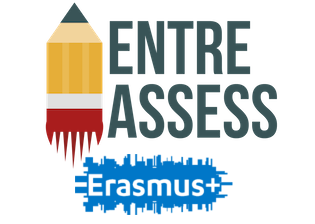Definition: The need for graduates, either from schools or further/higher education, to acquire skills beyond those linked with subject disciplines has been accepted for some time. Such skills have been described as ‘soft skills’, ‘essential skills’, ‘functional skills’, ‘employability skills’, ‘entrepreneurial skills’, etc. and relate to the personal qualities other than cognitive abilities needed by learners to be wholly effective outside of the education environment.
 Description: In recent years, there has been a growing expectation that one can measure, with precision and accuracy, the many positive personal qualities other than cognitive ability that contribute to student wellbeing and achievement. Four broad approaches to the assessment of generic skills have been identified: holistic judgments by teachers, portfolios created by students, assessment based on work experience, and assessment using purpose-developed instruments, each of them with its advantages and limitations according to the purposes of program evaluation, accountability, individual diagnosis, and practice improvement .
Description: In recent years, there has been a growing expectation that one can measure, with precision and accuracy, the many positive personal qualities other than cognitive ability that contribute to student wellbeing and achievement. Four broad approaches to the assessment of generic skills have been identified: holistic judgments by teachers, portfolios created by students, assessment based on work experience, and assessment using purpose-developed instruments, each of them with its advantages and limitations according to the purposes of program evaluation, accountability, individual diagnosis, and practice improvement .
Benefits: Among other things, a sound approach to the assessment of skills will provide:
- a means of providing feedback to learners on their acquisition of generic skills and a framework for their improvement
- a mechanism for communicating the scope of generic skills to learners, training providers and employers, providing a rich source of information about individual achievement, with supportive evidence
- an opportunity to undertake authentic assessments which occur within a work context or one that closely simulates it
- a summary of the performance of individuals readily accessible by employers
- a cost-effective means of collecting performance information, individually and at aggregate (institutional and system) levels.
Challenges: Since the inception of key competencies, their assessment has been a challenging issue for practitioners. On the one hand there is a lack of clarity about individual constructs of each generic skill. In addition, the evidence on transfer and the ability to apply a skill in different contexts is difficult to attain. Progression is another big issue and the identification of levels of performance is far from resolved. Each measurement tool has its advantages and limitations, so that the accuracy of data obtained could be questionable. Finally, we still do not know how to act on data regarding the personal qualities of students in various classrooms or schools.
Applied to entrepreneurial education: While a variety of methods has been used in the summative assessment of generic and/or entrepreneurial skills, there would appear to be a role for formative assessment methods that seek to assist student learning and enhance generic skills performance. A combination of different measures including self-report questionnaires, teacher-report questionnaires, performance tasks and portfolio assessment may produce a more accurate picture of progress in students’ ability and disposition to use such skills. In the classroom the teacher must ensure that they signal key elements of entrepreneurial skills and encourage students to analyse their use of the skills and to contemplate alternative situations in which it might be applicable.


